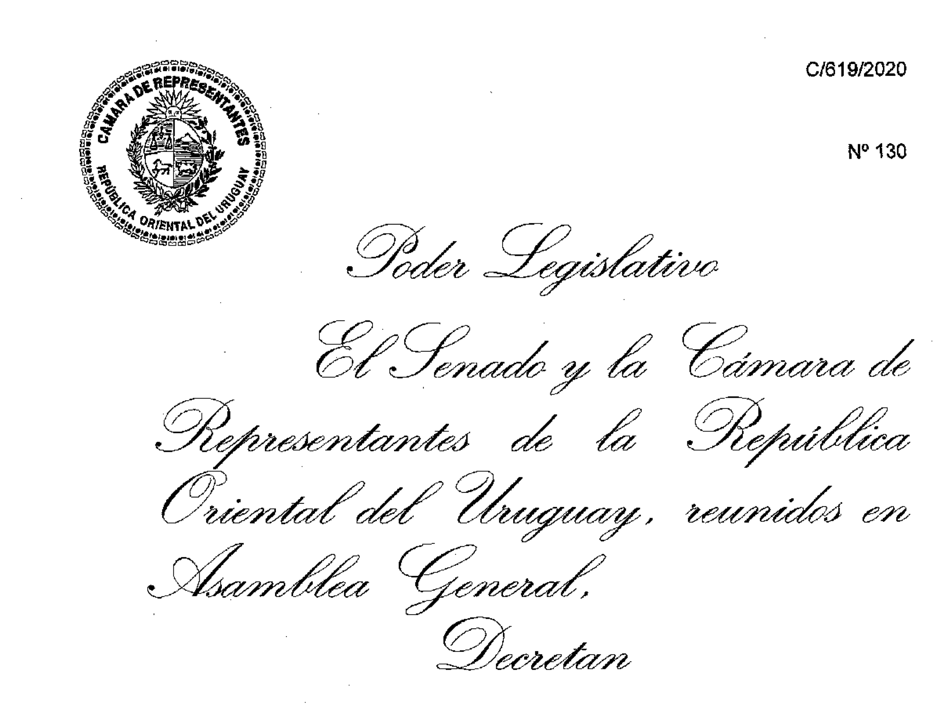New Uruguayan Private International Law Statute Passed
 Two months ago I reported that the enactment of a new Uruguayan private international law statute was forthcoming after the bill had passed the Senate. Similar hope had been premature in the past, but this time it proved justified:On November 17, the bill was approved by the Cámara de Representantes. Opposition to the establishment of party autonomy managed to reduce its scope but not prevent the statute altogether. The debate is here, the text of the statute is here. Some more background information is in my earlier post.
Two months ago I reported that the enactment of a new Uruguayan private international law statute was forthcoming after the bill had passed the Senate. Similar hope had been premature in the past, but this time it proved justified:On November 17, the bill was approved by the Cámara de Representantes. Opposition to the establishment of party autonomy managed to reduce its scope but not prevent the statute altogether. The debate is here, the text of the statute is here. Some more background information is in my earlier post.
Congratulations, Uruguay, and congratulations, world of private international law.



Just for information,
The possibility for the parties to select non-state law as the governing law of their contract is admitted in the Bahraini 2015 CoL Act, article 4 (here is a link an unofficial English translation: http://bahrainbusinesslaws.com/laws/Conflict-of-Laws-in-Civil-and-Commercial-Matters). The provision is maintained in the reform project currently pending before the Bahraini Legislative authorities.
In addition, a reform project of the PIL code was initiated in Tunisia and a draft was already submitted to the Ministry of Justice in 2019. The draft has not found its way to the parliament yet though. One of the major aspects of the reform is to extend the possibility for the party to choose non-State law as the governing law of their contract. It should be note that the solution is not new in Tunisia as Tunisian courts have already admitted the applicability of non-State law as the law chosen by the parties (see Sami Bostanji, De la promotion des usages du commerce international par la justice étatique (A propos de l’affaire interco c/ North African International Bank)’ Clunet, 2005 pp. 1067ss).
It should be highlighted that the restrictions found in the Uruguayan legislation and the Hague Principles do not apply in Bahrain (aforementioned Article 4) and Tunisia (case law and proposed draft reform), the only limit to the parties’ freedom being public policy and overriding mandatory rules.